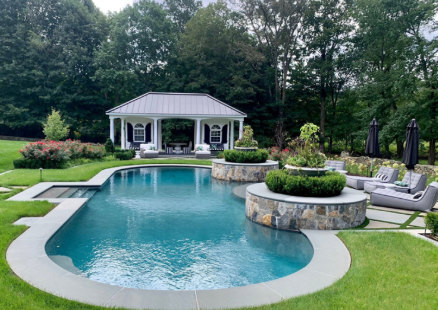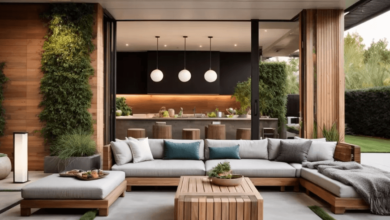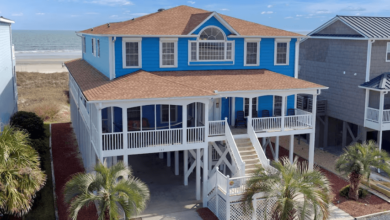
Why Quality Materials Matter When Building a Pool
Building a swimming pool is one of the biggest investments a homeowner can make in their outdoor space. It’s more than just a hole in the ground filled with water—it’s a long-term feature that should bring years of enjoyment, relaxation, and value to your home. However, the quality of materials used during construction can make or break the success of your pool. From the structure and plumbing to the finishes and surrounding areas, every component needs to be strong, durable, and resistant to the elements.
Choosing the right materials isn’t about choosing the most expensive ones—it’s about selecting products that are known for their strength, weather resistance, and longevity. Poor material choices might save money upfront, but they often lead to costly repairs, safety hazards, or complete replacements down the line. In this article, we’ll explore why using quality materials from swimming pool construction companies in Dubai is essential in pool construction and how it benefits homeowners in the long run.
1. Longer Lifespan and Durability
One of the clearest advantages of using high-quality materials is durability. Pools are exposed to a harsh mix of sun, chemicals, water pressure, and temperature changes. Cheap or subpar materials often degrade quickly, leading to cracks, leaks, and other structural issues within just a few years.
On the other hand, quality materials—such as high-grade concrete, corrosion-resistant steel, UV-stable liners, and ceramic tiles—can withstand these stresses far better. They resist wear and tear, handle chemical exposure better, and are built to last for decades. A well-built pool with top-quality materials can stay in good condition for 20 to 30 years or more with proper care.
2. Lower Long-Term Maintenance Costs
While it might seem cost-effective to go with budget materials during construction, those savings usually vanish quickly due to increased maintenance needs. Inferior products may chip, stain, corrode, or break down more easily, leading to regular repairs or replacements.
For example:
- Low-grade pool liners may fade or tear within a few seasons.
- Cheap plumbing parts can leak or clog easily.
- Poor-quality finishes may attract algae and require more chemical use.
Quality materials may cost more upfront, but they usually require less maintenance, saving time, money, and hassle over the life of the pool.
3. Enhanced Safety for Swimmers
When it comes to pools, safety should always be a top priority—and good materials contribute directly to a safer swimming environment. Quality decking materials are often non-slip, which reduces the risk of slips and falls. High-grade coping stones are more stable and less likely to shift or crack under pressure.
Also, pool shells made with durable, properly reinforced concrete are less likely to leak or break, avoiding structural issues that can pose hazards. Well-manufactured tiles are smooth, preventing cuts or scrapes for swimmers.
By investing in top-tier construction materials, you also reduce the chance of accidents and injuries, making your pool area safer for everyone.
4. Better Aesthetics and Design Flexibility
A swimming pool should not only be functional but also visually appealing, and high-quality materials make a noticeable difference in how your pool looks. Premium tiles, natural stone, and polished aggregates offer richer colors, more texture, and a luxurious finish that cheap materials simply can’t match.
Better materials also give homeowners more design freedom. Want a mosaic-tiled infinity edge? Or a natural rock waterfall feature? These elements require materials that can hold up under specific structural and environmental conditions.
When you use quality materials, your design possibilities expand—letting you create the best swimming pool construction that suits your taste and adds beauty to your backyard.
5. Increased Home Value
If you ever plan to sell your home, your swimming pool can either be a selling point or a warning sign—depending on its quality. Pools made with durable, attractive, and professionally installed materials are often seen as premium additions that increase the resale value of your property.
Real estate agents and buyers alike recognize the difference between a high-end pool and a poorly built one. A quality pool sends a clear message that the home was built with care, and future maintenance will be minimal. That translates to higher buyer confidence and potentially better offers.
6. Resistance to Weather and Climate
Outdoor pools must be able to withstand the local climate, whether it’s scorching sun, heavy rains, or freezing temperatures. Substandard materials tend to crack, fade, or corrode when exposed to extreme weather.
Quality materials are often specifically designed for UV resistance, freeze-thaw cycles, and chemical exposure. For example:
- Saltwater pools require corrosion-resistant materials like marine-grade stainless steel.
- Pools in hot climates need tiles and plaster that won’t discolor or expand.
- Areas prone to freezing need materials that can handle temperature swings without cracking.
Choosing climate-appropriate, weather-resistant materials ensures your pool can handle the elements year-round.
7. Fewer Health and Sanitation Issues
Pools with poor construction materials can be harder to keep clean and balanced, leading to algae growth, bacteria buildup, or water discoloration. For instance, porous surfaces can harbor microorganisms, while degraded liners might leach chemicals into the water.
Quality materials are often non-porous, chemical-resistant, and easier to sanitize. This makes it easier to maintain clean, healthy water and reduces the amount of chemicals needed for regular treatment.
With better materials, your pool becomes a healthier place for your family and guests.
Read more: Gravilla para Jardín: A Smart Choice for Modern Landscaping
8. Professional Installation Compatibility
High-quality materials are usually easier and more reliable for professionals to install. They’re manufactured with consistent standards, which means fewer defects, better fitting parts, and cleaner finishes. Contractors often prefer working with quality materials because they result in smoother construction, fewer delays, and a better final product.
In contrast, cheap materials can complicate the job. Inconsistent sizes, fragile finishes, and incompatible parts can slow down the process and even lead to mistakes. That’s why most reputable pool builders will recommend quality materials—they know it means fewer problems during and after construction.
The materials you choose for your pool will shape its future—how it performs, how it looks, how much it costs to maintain, and how long it lasts. Investing in quality materials from the very start for villa renovation in Arabian Ranches is the smartest way to ensure your pool is a source of joy and value for many years to come.
So before you start building, talk to your contractor, research your options, and never compromise on quality. Because when it comes to pool construction, cutting corners today can cost you big tomorrow. Build it once, build it right and enjoy the rewards for a lifetime.



